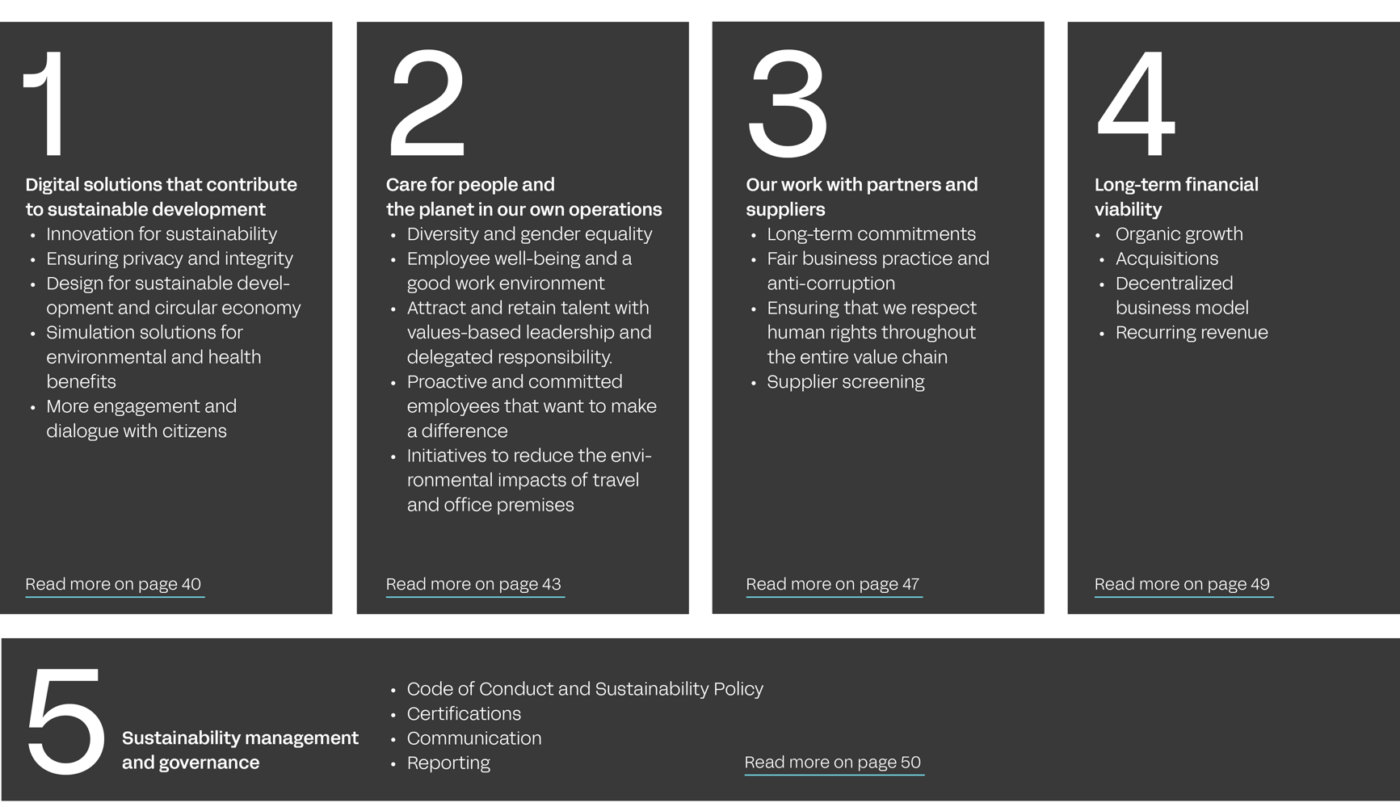Sustainability Agenda
Addnode Group’s sustainability work proceeds from a Sustainability Agenda formulated in 2020. The Agenda has five focus areas with associated key performance indicators used to plan and follow up on the Group’s sustainability work. The Sustainability Agenda is complemented by a Code of Conduct and Sustainability Policy that set a framework for how we interact with each other within the Group, and with our external stakeholders.

Sustainability throughout the entire value chain
The digital solutions our companies develop contribute to a more sustainable society. The strategy creates value for customers, collaborative partners, employees and owners. We take responsibility for our direct impact on people and the environment, and endeavour to do this in a way that minimises negative impacts and maximises the positive ones. We undertake to comply with fair business principles, counter corruption and respect human rights. We work continuously to develop relationships with actors in our value chain to ensure that they are also operating on the same responsible basis that we do.
Formulating a sustainability agenda
Addnode Group’s sustainability priorities have been defined in a Sustainability Agenda. The work on formulating the Sustainability Agenda began in 2020, a process that involved the following elements:
- Mapping and selecting those SDGs that are most relevant for Addnode Group to work on
- Mapping the contribution our own operations make to sustainable development
- Identifying our main stakeholders and analysing their expectations
- Analysis of risks and opportunities
- Identifying focus areas for our Sustainability Agenda and defining the associated KPIs
Sustainability agenda backed by each company’s activities
Addnode Group consists of some 20 subsidiaries organised into three divisions. Much of our daily work within the sustainability field is carried out in these businesses. Our companies work on activities and initiatives based on their own assessments and assumptions of what applies to each business. Some companies have decided to ISO certify their own environmental operations, others set targets for the share of their projects designed to contribute to one of the UN SDGs, while many companies also take their own decisions to incorporate social or environmental factors at local workplaces.


